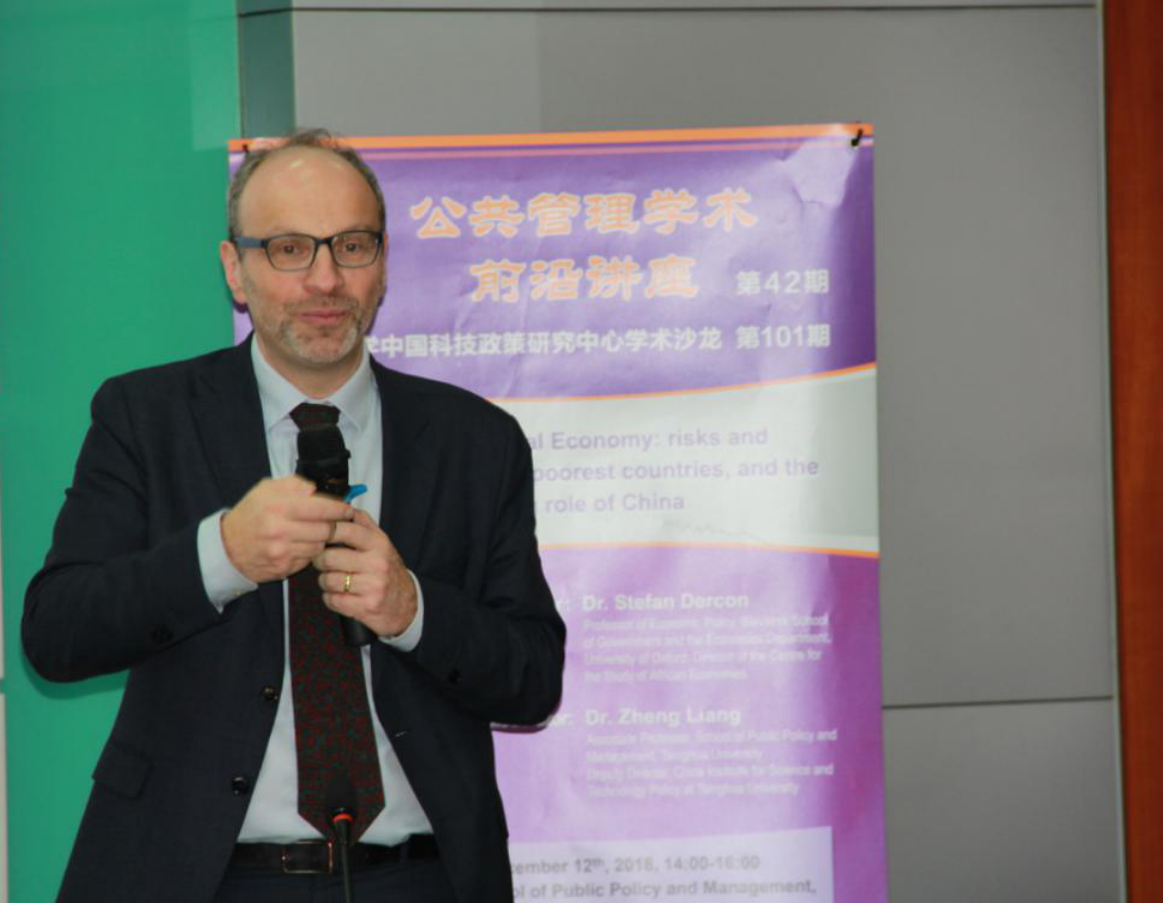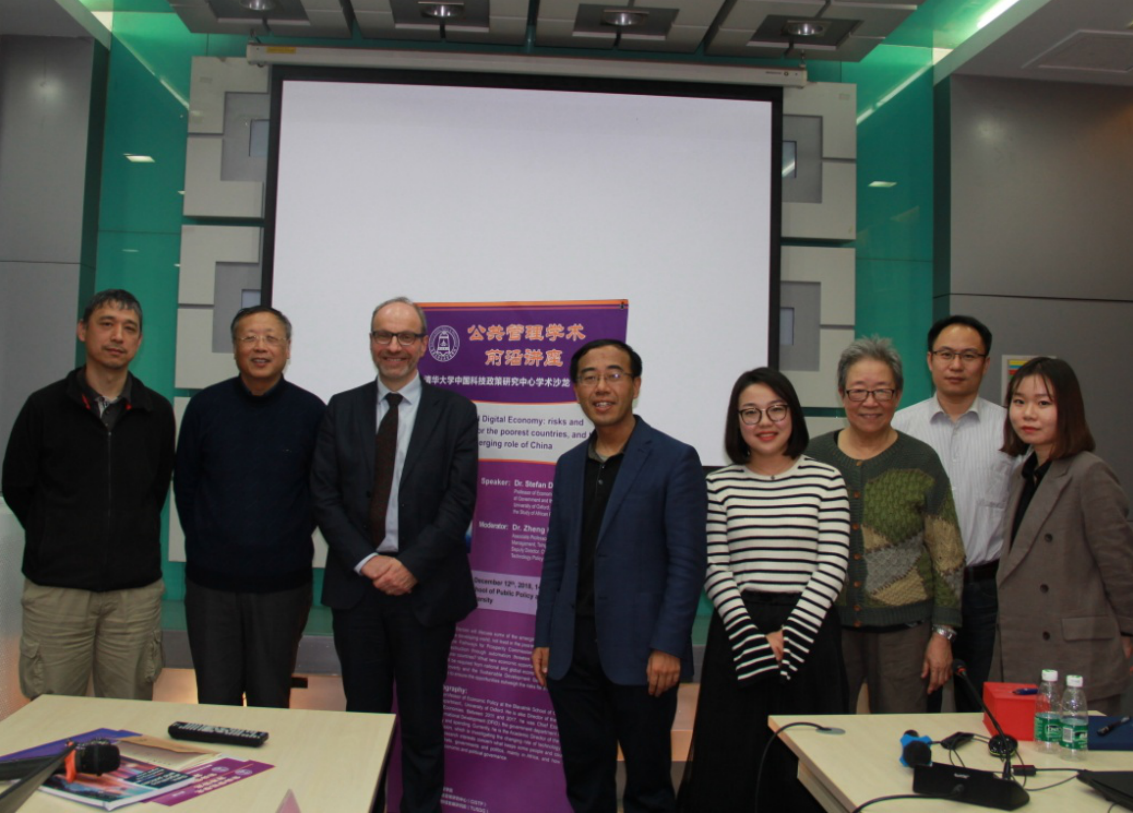On December 12th, CISTP'S 101st Academic Salon were held in the Room 321 of School of Public Policy & Management.
Stefan Dercon, Professor of Economic Policy at the Bravatnik Government School of Economics and the Department of Economics at the University of Oxford, delivered a speech entitled “The Global Digital Economy: risks and opportunities for the poorest countries, and the emerging role of China”. The lecture was hosted by Liang Zheng, associate Professor of Tsinghua University and deputy director of the China Institute for Science and Technology Policy of Tsinghua University. More than 30 teachers and students attended the lecture and had an in-depth exchange with Professor Stefan Dercon.

Stefan Dercon delivered the speech
Stefan Dercon discussed some of the emerging opportunities and risks of new technologies in the developing world, not least in the poorest settings in Asia and Africa, based on work by the Pathways for Prosperity Commission, and its recently published reports. Will job destruction through automation threaten trade and other economic opportunities for poorer countries? What new economic opportunities may emerge for these countries? What will be required from national and global economic governance? What will all this mean for poverty and the Sustainable Development Goals? How can countries including China help to ensure the opportunities outweigh the risks for these countries?

Group photo with Dr.Stefan Dercon
Stefan Dercon is professor of Economic Policy at the Blavatnik School of Government and the Economics Department,University of Oxford. He is also Director of the Centre for the Study of African Economies. Between 2011 and 2017, he was Chief Economist of the Department of International Development (DFID), the government department in charge with the UK’s aid policy and spending. Currently, he is the Academic Director of the Pathways to Prosperity Commission, which is investigating the changing role of technology in inclusive development. His research interests concern what keeps some people and countries poor: the failures of markets, governments and politics, mainly in Africa, and how to achieve change and better economic and political governance.